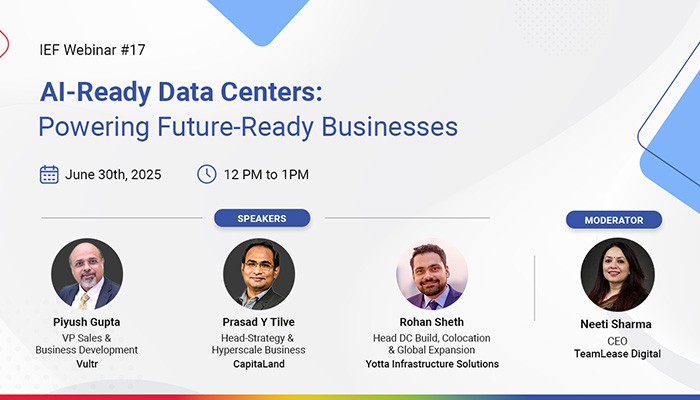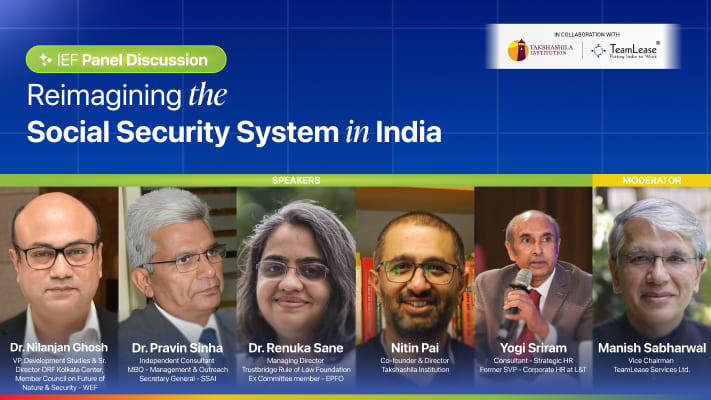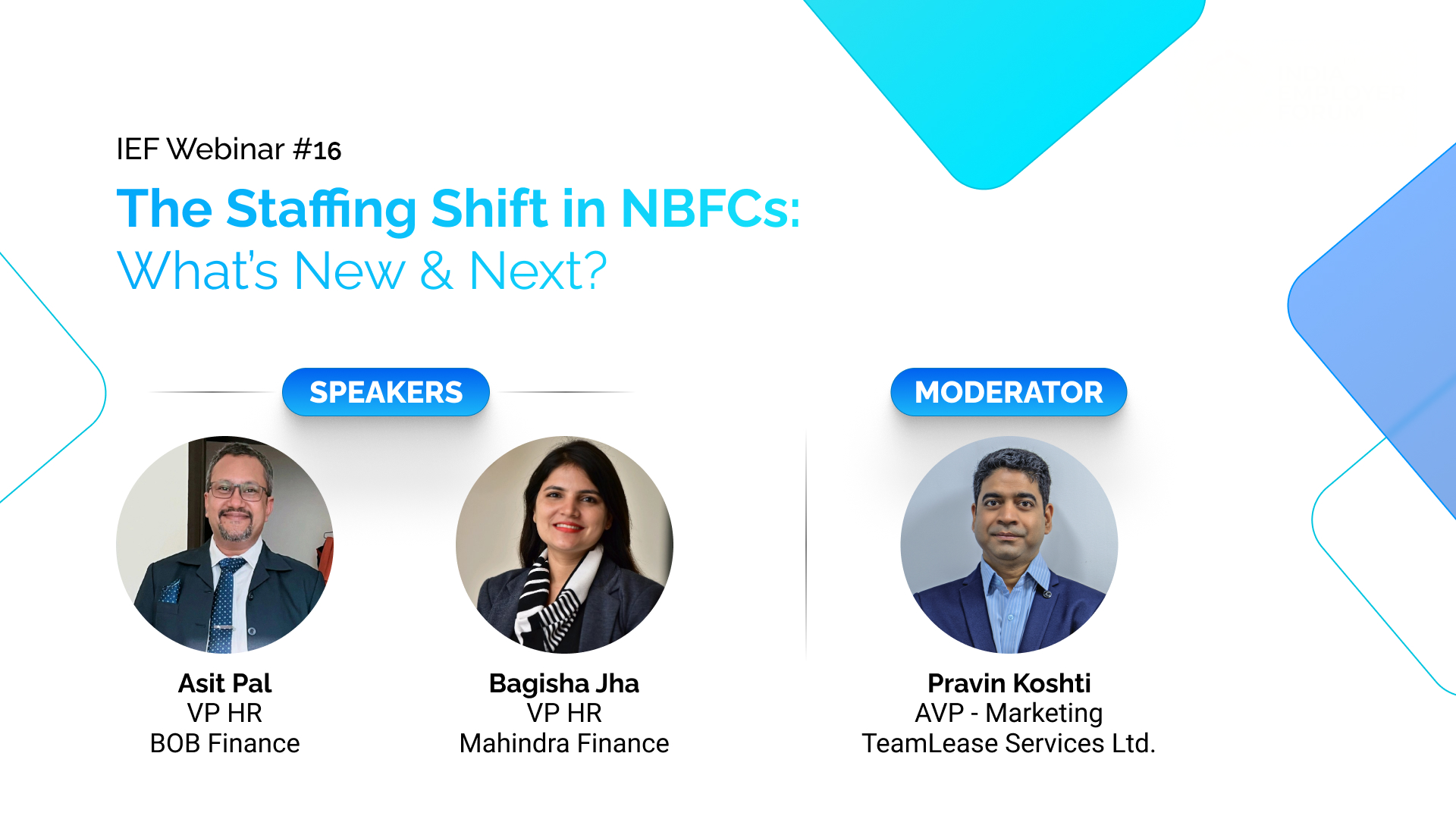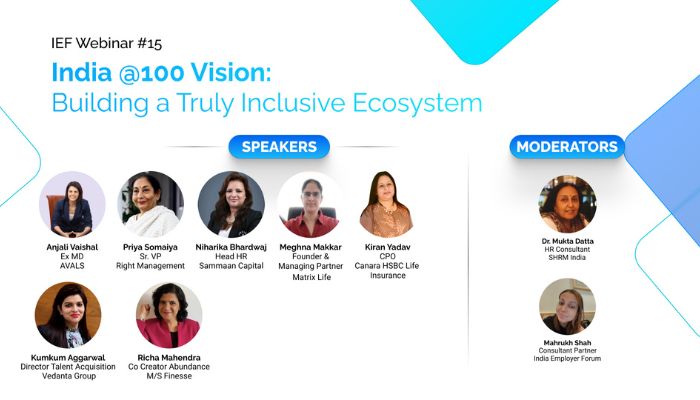In today’s rapidly evolving landscape, the quest for organisational success has taken on a new dimension. Work is no longer just a source of livelihood but a means to add value and make a difference. For employers too it is no longer just about employee engagement but rather fostering genuine ’employee involvement’ to cultivate a sense of fulfilment and boost productivity.
This webinar explores the concept of happy workplaces shedding light on the transformative power of employee involvement while also navigating the complexities of talent acquisition in the age of generative AI. We’ll delve into why engagement strategies are becoming outdated and how involvement is emerging as the cornerstone of organisational culture. Additionally, we’ll explore the future of talent acquisition, examining how AI is reshaping recruitment practices, the ethical considerations in play, and the best practices for leveraging AI technologies to build diverse and inclusive teams. Join us for an enlightening discussion on redefining workplace happiness and staying ahead in the era of AI-driven innovation.
In the closed-door webinar on 28th May 2024, eminent corporate leaders had a productive discussion on this topic in a 2-part series. The dialogue was around the intricate web of AI’s impact on professions, workforce dynamics, and the very nature of industries. From the automation of routine tasks to the creation of entirely new job categories, we unravelled the complexities of this transformative force and provided insights into how individuals and organisations can adapt, thrive, and shape the future in the age of artificial intelligence.
The webinar had five eminent industry experts who shared their views on employee involvement and talent acquisition in the AI era. Balasubramanian A, Sr VP, TeamLease Services Ltd moderated session 1 and Munira Loliwala, AVP – Business Strategy, TeamLease Digital moderated session 2.
When asked about engagement vs involvement, Nash Narsimhan, Head of Services Business for HP Store APJ & EMEA said, “There is a difference between engagement and involvement. Engagement is a feeling and involvement is action. The best example I would give is Mahatma Gandhi. He was not a great orator but he did certain things which inspired people like the Dandi March. He just walked 200-plus kilometres to take salt in his hand. His involvement or giving up his barrister suit after being educated in England and wearing the loin cloth is a very very powerful way to show he was very involved in the freedom struggle. It’s an example of involvement. So, if you see an Engaged employee need not be an involved employee but an involved employee is definitely an engaged employee”.
The second expert on the panel who spoke on the subject was Parul Makkar, HR Lead at JSI. She said, “I would take you back to academics where Frederick Herzberg, an American psychologist gave a Two-Factor Theory of Motivation by simply asking people to describe the times when they felt really good, and really bad, about their jobs. Consequently, he developed the idea of broadly two motivational factors – extrinsic or hygiene factors and intrinsic or motivation factors. Extrinsic factors of motivation were seen to satisfy one’s basic needs to work like salary/ pay, hierachical growth, fringe benefits and job security. On the other hand, the intrinsic factors tend to satisfy less tangible and more emotional needs which motivates one from within oneself like the purpose of us coming to work every day, professional growth, work satisfaction, recognition etc. So when I work with my team, and when I see a lot of emotional commitment and the enthusiasm of employees that they possess towards their work and the organisation, I feel they are involved with the organization and not just engaged with a job”.
Adding to it, our third panellist Madhura Bagchi, Principal Consultant, Great Manager Institute said, “Until a while back our Generation was I think mostly motivated by money among many things, but today’s generation, that is Generation Z, who are more and more coming into the workforce, they are not at all motivated by money, simply because they’re coming in from very established backgrounds. So, most of them are people who are coming from economically stable families. For them, it’s the purpose which matters. So, Generation Z is looking at things in a very different way. They are a more aware generation, so they want to have a purpose, they want to ensure that they’re feeling like they’re a partner to the company. Hence, involvement is becoming a key”.
Talking about AI strategies to recruit better talent, panellist Dr. Soni Sharma, Associate Professor, Business Communication, Asian Journal of Business Research said, “AI has reshaped the landscape of talent acquisition and talent management and it is rather killing the job or cutting certain jobs. What I have tried to convince future generations is that it is creating a lot of other avenues as well. I’m a trainer and I have never seen AI replace me as trainer. I’m still getting a lot of opportunities. So, when our students are coming into human resource and joining this course now, yes recruitment is one section where AI is helping massively and in short, lifting as well. But the moment we talk about training and finding the right talent, it is still the humans that are helping the organisation”.
The last speaker Smitha Yadav, Head HRBP, CDK Global also had something interesting to say on the AI subject. She said, “We keep talking to many other HR practitioners and seeing in the company that I am working with as well, AI is making things easy. It is more progressive in the sense that there is better time management, there is better screening, which is happening due to AI and also there is speed and agility to the entire process, because of that there’s a lot of bias which gets removed early in the resume screening. Due to the AI models being used in organisations, jobs will be lost but we all have been progressing and there are multiple jobs which are being created even after AI has picked up speed owing to AI again”.
In conclusion, the discussion offered invaluable insights into talent acquisition in the AI world and how employee engagement and happiness quotient at work enhance productivity and loyalty.
View the entire sessions here:
IEF Webinar #11 | Unveiling the Happiest Places to Work – Part I
IEF Webinar #11 | Unveiling the Happiest Places to Work – Part II





